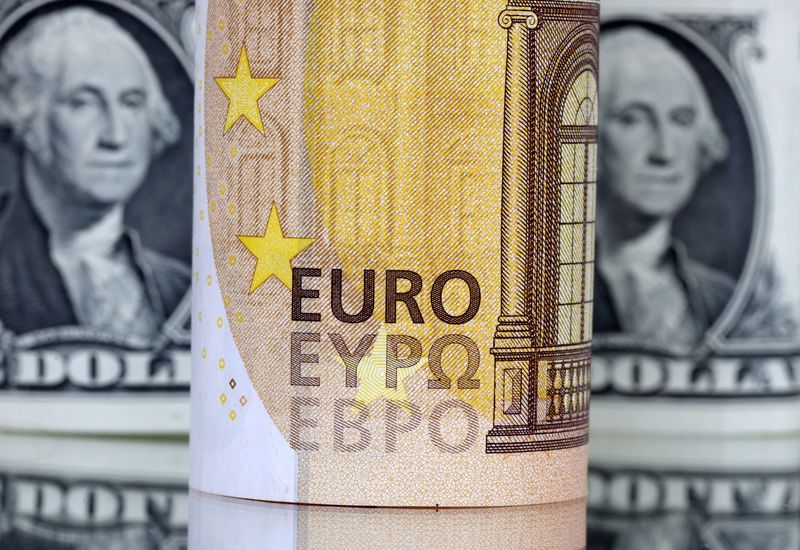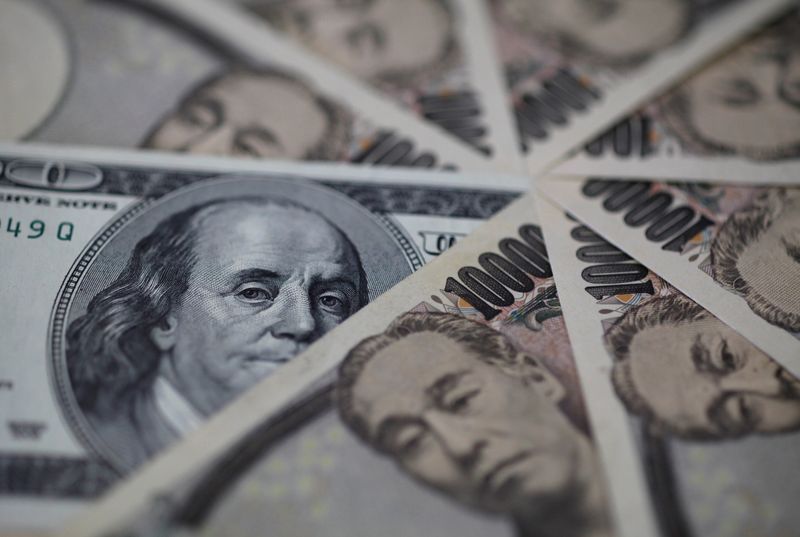By John McCrank
NEW YORK (Reuters) - The dollar tumbled to a nearly nine-month low against the euro on Thursday after data showed U.S. inflation was easing, prompting bets that the Federal Reserve will be less aggressive with rate hikes going forward.
The move lower in the dollar came as the Japanese yen surged, hitting a more than six-month high against the greenback, on a report that the Bank of Japan may take further steps to address the side effects of monetary easing.
U.S. data showed the consumer price index (CPI) dipped 0.1% last month, marking the first decline in the data since May 2020, when the economy was reeling from the first wave of COVID-19 infections.
Price pressures are subsiding as the U.S. central bank's fastest monetary policy tightening cycle since the 1980s dampens demand, and bottlenecks in the supply chains ease.
"Three months of relatively lighter core inflation figures are starting to form a trend ... one that could spur the Fed to slow the pace of tightening further on February 1," said Sal Guatieri, senior economist at BMO Capital Markets.
Fed policymakers expressed relief that price pressures were easing, paving the way for a possible slowdown in interest rate hikes, but they signaled the central bank's target rate was still likely to rise above 5% and stay there for some time despite market bets to the contrary.
Following the CPI report, the dollar plunged as much as 1% against the euro, its weakest versus the common currency since April 21.
The euro has been supported by hawkish messaging from European Central Bank officials, with four on Wednesday calling for additional rate increases.
"Our expectations are for another 125 basis points of rate hikes from the ECB and stay there until 2024," said Chris Turner, global head of markets at ING in London.
"Our core views for Fed policy versus ECB policy would be for a stronger euro-dollar through the year."
The dollar was down 0.83% versus the euro at $1.0845 at 3 p.m. EST (2000 GMT) and down 0.56% against the pound at $1.22195.
The U.S. dollar index was down 0.815% at 102.20, its lowest level since June 6.
The greenback slumped as much as 2.7% against the yen, hitting a 6-1/2-month low against the Japanese currency.
The yen was boosted by a Yomiuri report that the Bank of Japan (BOJ) will review the side effects of its monetary easing at next week's policy meeting and may take additional steps to correct distortions in the yield curve.
The news follows the BOJ's surprise tweak in December to its bond yield curve control (YCC), though the move has failed to address distortions caused in the bond market by the central bank's massive bond buying.
"With reports that the BOJ will review its lax monetary policy settings at its upcoming meeting, speculation has grown that another YCC shift will occur this quarter," said Mazen Issa, senior FX strategist at TD Securities.
That will likely happen at the BOJ's January meeting, and if not then, by March, he said.
"We expect 122 this quarter and likely in short order," he said of the dollar-yen currency pair.
The dollar was last down 2.41% versus the yen at 129.35 yen per dollar.
The Aussie rose 0.92% to $0.69695, while the kiwi was up 0.52% at $0.63995.

China's offshore yuan was at its strongest level in five months, at 6.7331 per dollar, on optimism that China's economy is on the road to recovery.
Meanwhile, bitcoin rose for the fifth consecutive day, hitting its highest in a month at $18,863.
